For the first time in 25 years, I became aware that the reels from our 1985 recording sessions were not destroyed, as I had been previously led to believe. These four tracks came to me in 2011; the story seems to be that Buck Dharma was building a home studio, and was given these tracks to experiment with.
Seriously. Completely out of the blue, one day I found these .mp3s attached to an e-mail. It was the first indication I had in over two decades, that the masters we had recorded back in 1985 still actually existed, and that they had been offered to the Blue Oyster Cult guitarist as a home studio project. Considering the number of old bandmates who had already taken their leave of this mortal coil, I suppose I felt (among other things) fortunate to have remained alive long enough to hear this. C’est la vie, I reckon …
When the tracks were sent to me, these notes were are the info that was included:
The Last Danse (2)
Practicality
Process (1)
Streetwise (4)
Are the parenthetical numbers takes? Versions? I don’t know. That’s all the information I was given.
Here are my initial reactions to hearing these re-worked tracks for the first time, along with whatever else popped into my head while listening to them.
The Last Danse:
It sounds like Buck really picked up on what I was trying to do with the call / response vocal overlay thing. It was more of a poem than a song per se, at least my input. This version sounds more cohesive than the original, and pretty accessible, although it suggests to my ears some other ideas that could easily veer off into early Fall / Pere Ubu territory. The “left” or first vocal part could be processed as though through a slightly reedy bullhorn, more like radio static, less echo-ey voice and more compressed or strained sounding. There is some room for an almost ambient kind of crowd noise, to offset the vocal – not like applause, but the sounds of a crowd – shouting, like at a dance, or some public function. The “right” or second vocal part might also be less echo-ey, sounding more like it’s coming from right inside your own head.
I think this one was put together in the studio, and was never performed. I wrote the lyrics to the music the others created. The words were my response to the painting we had purchased a few years earlier from a Mpls artist, Kevin Johnson, which in turn provided the band with a logo – and also the title of this song. He had tried to tell a story about an event in his painting. If it’s true that a picture paints a thousand words, then I was trying to take those words and put them into their own context.
When this song was originally recorded, I whistled a little tune at the beginning. Though it wasn’t an essential part of the piece, it somehow seemed appropriate at the time. It was actually a bar from “The Love You Save”, by the Jackson 5, which I thought provided an interesting bit of contrast to the somber tone of the song we were performing, but quite in the spirit of dance music. I don’t think anyone else appreciated that bit being there, and it is completely absent from this version. So it goes.
Practicality:
Whoa. Okay, when I first opened the file and looked at it in a waveform, I knew it was going to hit hard. The levels blow the top and bottom away at the same time [re: loudness wars]. The benefit is that the reedy keyboard sound is sufficiently squashed, and the guitar slashes its’ way through the entire song, building a steadily increasing intensity, like the anthem I wanted it to be when I wrote it. The bass line is as funky as a rubber band, and the drums are tight like buttoned-down trousers. The vocal harmonies are glorious. There is nothing wrong with this. Why didn’t we think of doing it this way?
Streetwise:
This seems straightforward enough – essentially, a poem given a framework for a righteous bit of guitar harmolodics. Did it really come together that effortlessly, or did the production save it? I seem to remember this one being a bit difficult, more often than not.I can’t help being super-self-conscious about trying to find my “voice”, while singing someone else’s words – particularly if that person is right there in the same room, playing guitar, and hearing my efforts at translating their creation. In some ways, I had to work harder at a collaboration like this than with my own compositions, because I want to do justice to the other person’s contribution. I think I pulled it off here, at least.
The vocal started out fairly “normal”, and lapsed into something a bit more contrived by the last verse. That kind of affectation was something I was always undecided about at the time. I thought that the effect added something vital in situations like this, but I also wondered if it was too “fake”. I guess I thought the approach was appropriate at the time. Hearing it in this context, it still seems appropriate.
The guitar certainly sounds fluid all the way through to my ears. There is a particularly nice bit of interplay at the beginning, as the bass line weaves around the introductory guitar melody. This becomes something of a recurring signature later in the song, and the arrangement is solid.
What is there to be critical about with this one? Well, okay… there is a surprise burst of what sounds like coil reverb applied to the vocal near the very end, and while it provides an interesting effect, I’m not sure that it adds anything vital. Did we put that there, back in the ‘80s? Also, I think it would be effective if the final repeated vocal actually faded incrementally, into the distance, considering the lyric alludes to this.
Process:
Ahhh, the Glenn Branca style approach to anthemic rock. I loved this song, even though it never existed outside out the studio. If memory serves, it was actually constructed entirely within the studio walls, and never even performed live once. This recording certainly sounds bigger and more lifelike than I remember it, but I think that most of the tweaking here is fairly subtle. The arrangement itself had an escalating intensity built into it from the start. I’m divided on the application of delay, on the drum track at the beginning, as well as the vocal interim, just prior to the last verse. The effect is cool, although I think about half as much might be even more cool. I think I envisioned the vocals having less of an echo effect, and having more of the kind of presence you hear when you hold your hand in front of your face, and talk into into it. I love the way the guitar harmonics come off like church bells during the midsection, though. It’s really a shame we never got to play this one live.
All in all, this could make a fine vinyl EP.
My suggested sequence would be the same as the running order on this page:
Side A – big anthemic rock side
Process (3:14)
Practicality (6:04)
Side B – introspective poetic side
Streetwise (3:13)
The Last Danse (4:02)
Then again, since we’re living in a digital age, they would probably just end up being “bonus” tracks tagged on the end of the album.
But then… I keep wondering if the digital era supersedes the notion of an “album” – meaning that unless a group of compositions were intended to be compiled as a singular body of work, each piece of music stands independently on its’ own.
Perhaps?
BORROWED TIME
Buck Dharma 2011 re-mixes
Process, The Last Danse © Borrowed Time; 1985;
words: J. Free / music: Borrowed Time
Practicality (words & music) © J.Free; 1983
Streetwise (words & music) © Melne Murphy; 1981
All songs performed by Borrowed Time.
Originally recorded in 1985 by Jeff Labelle at Pax Studios; Apple Valley, MN
Re-mixed in 2010 by Donald “Buck Dharma” Roeser


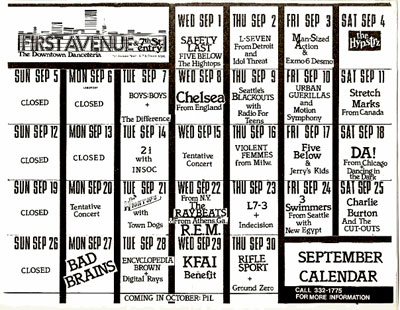
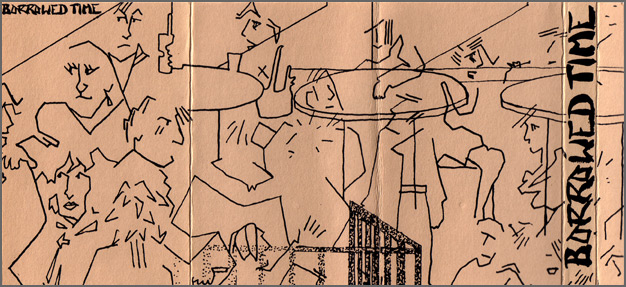
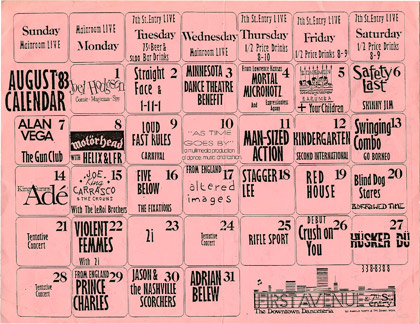
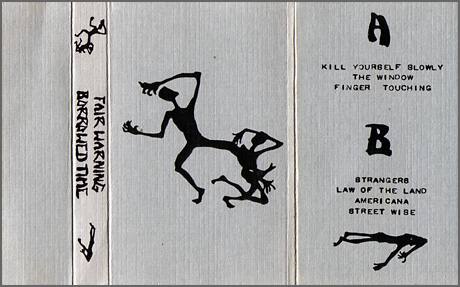
![1982 flyer for a birthday party gig [310px]](https://sonicarchives.com/wp-content/uploads/bt-flyer.jpg)
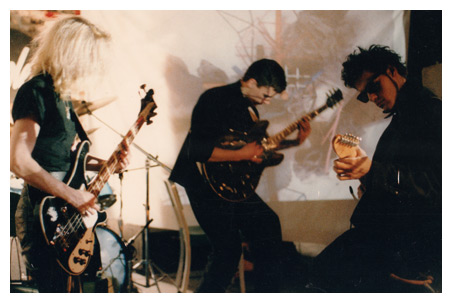
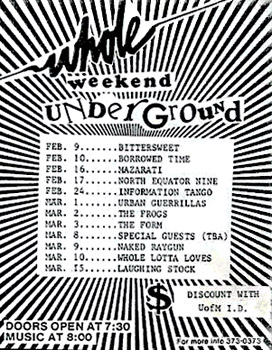
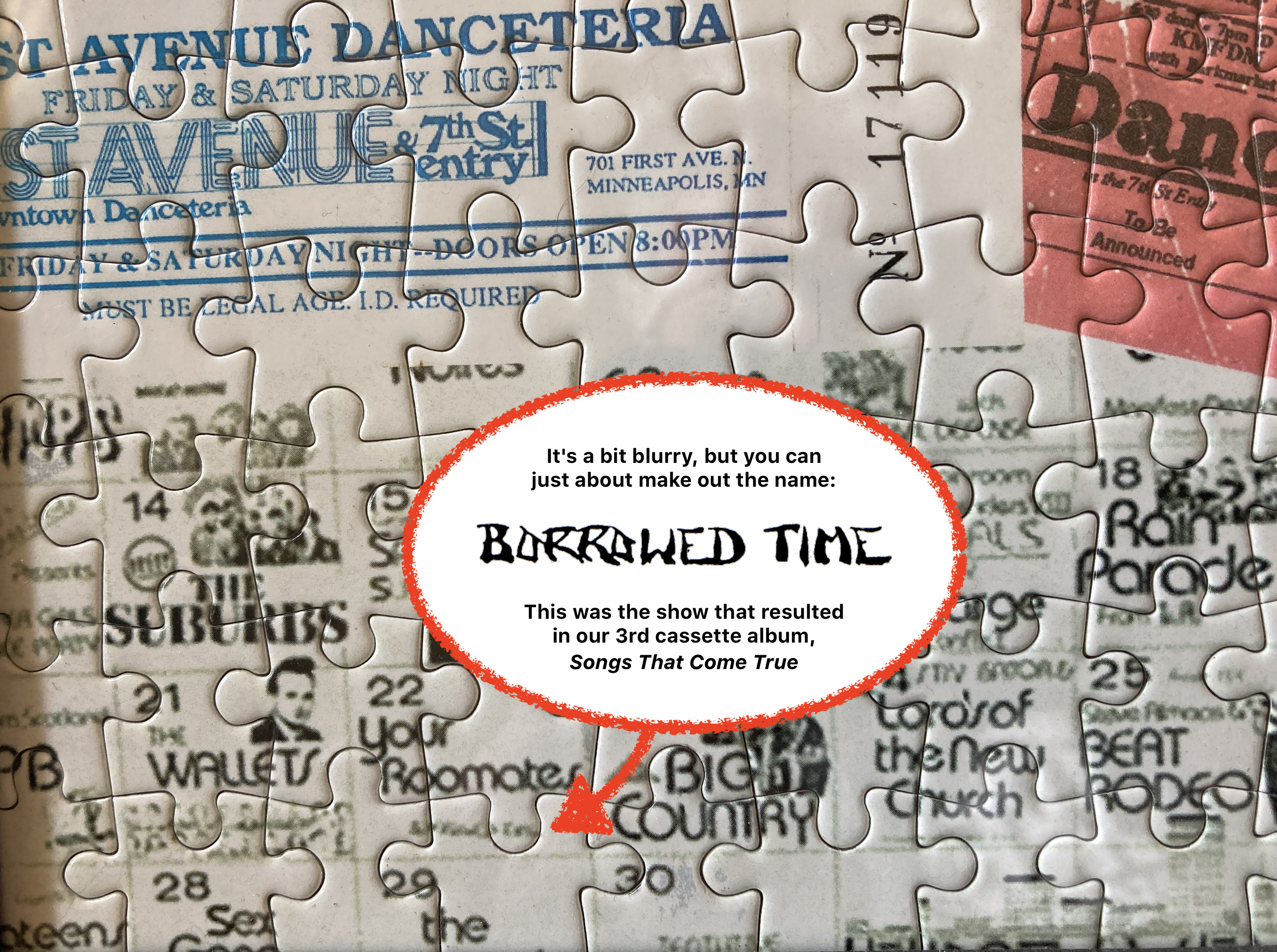
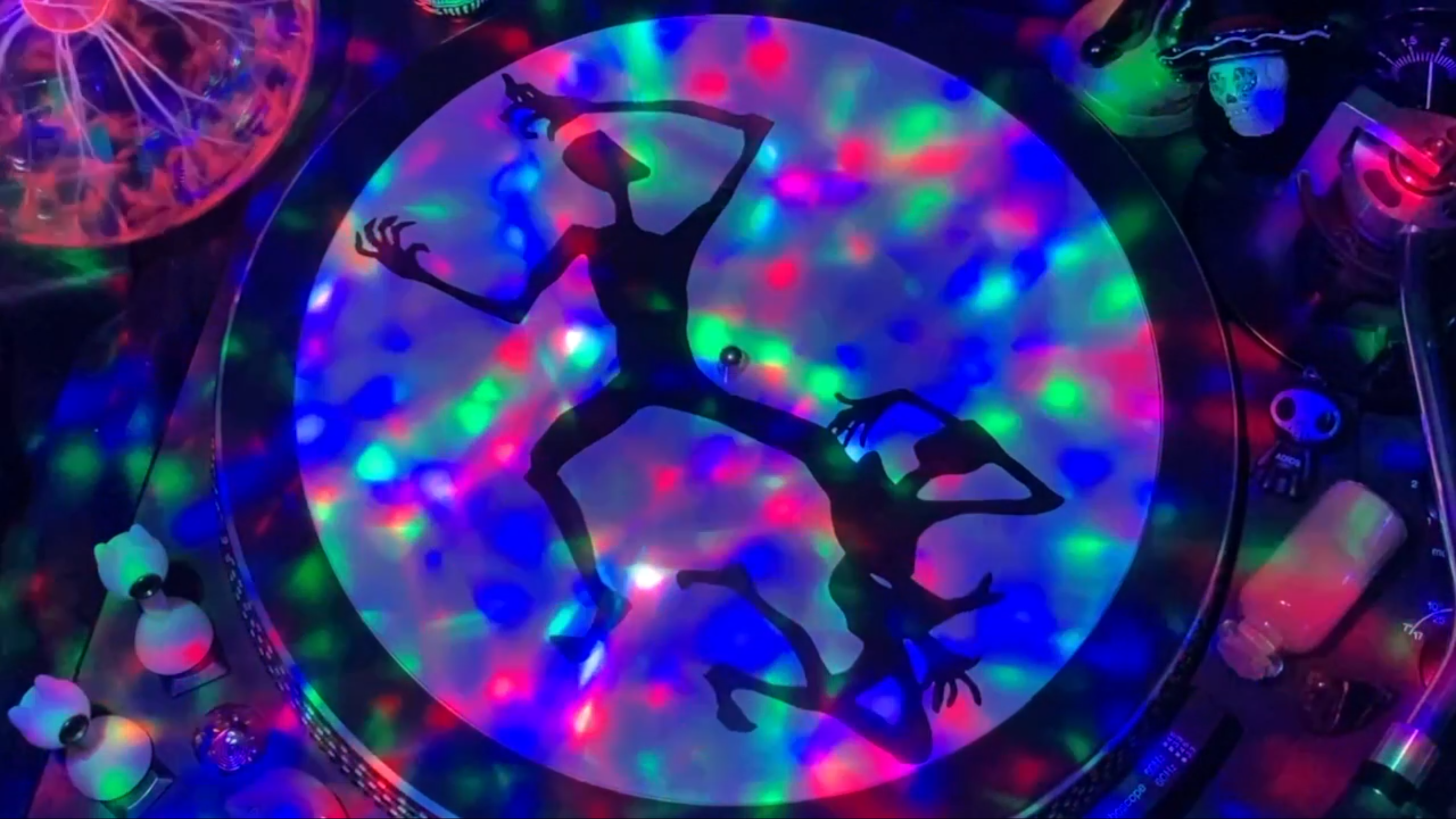
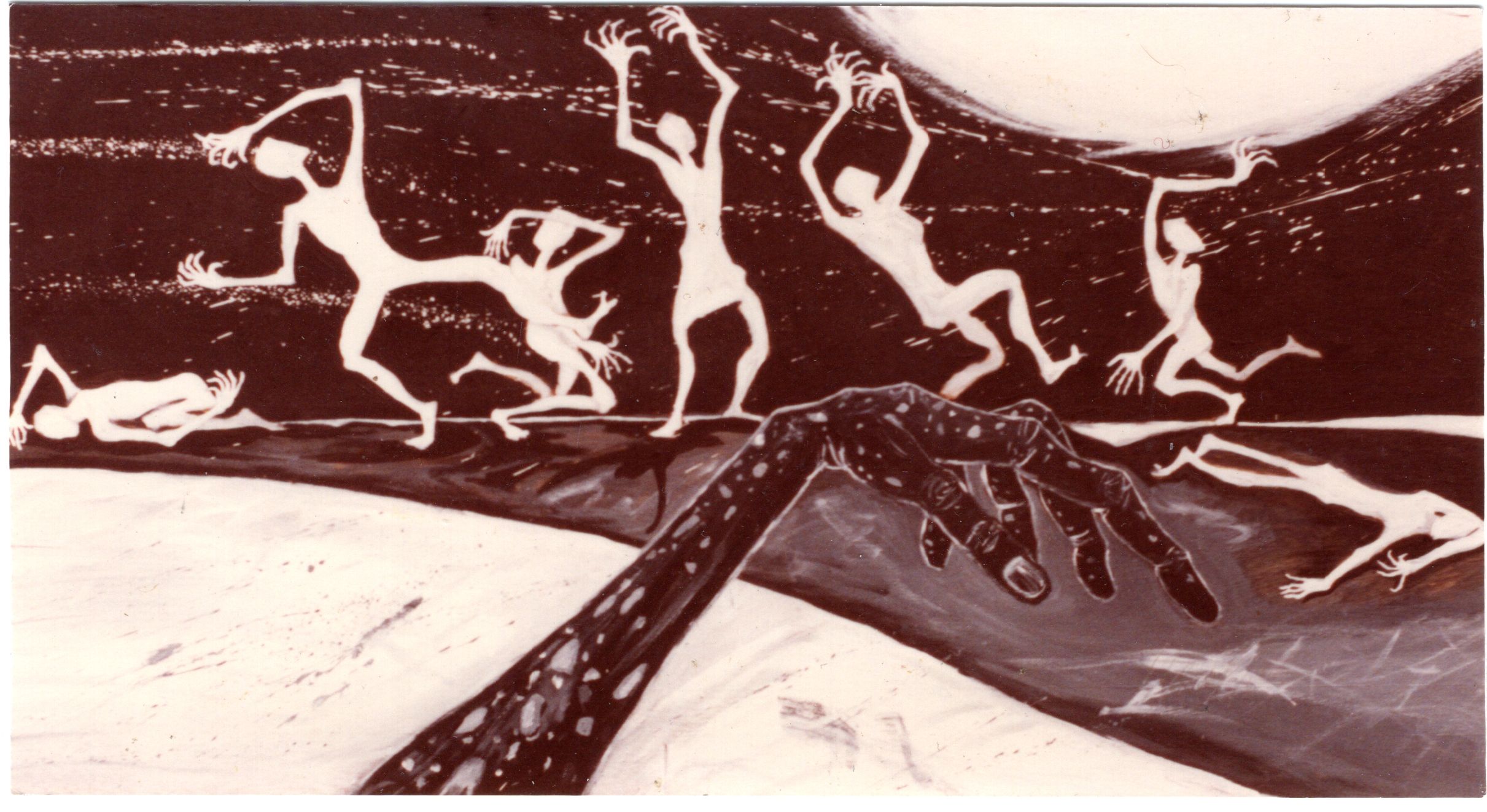
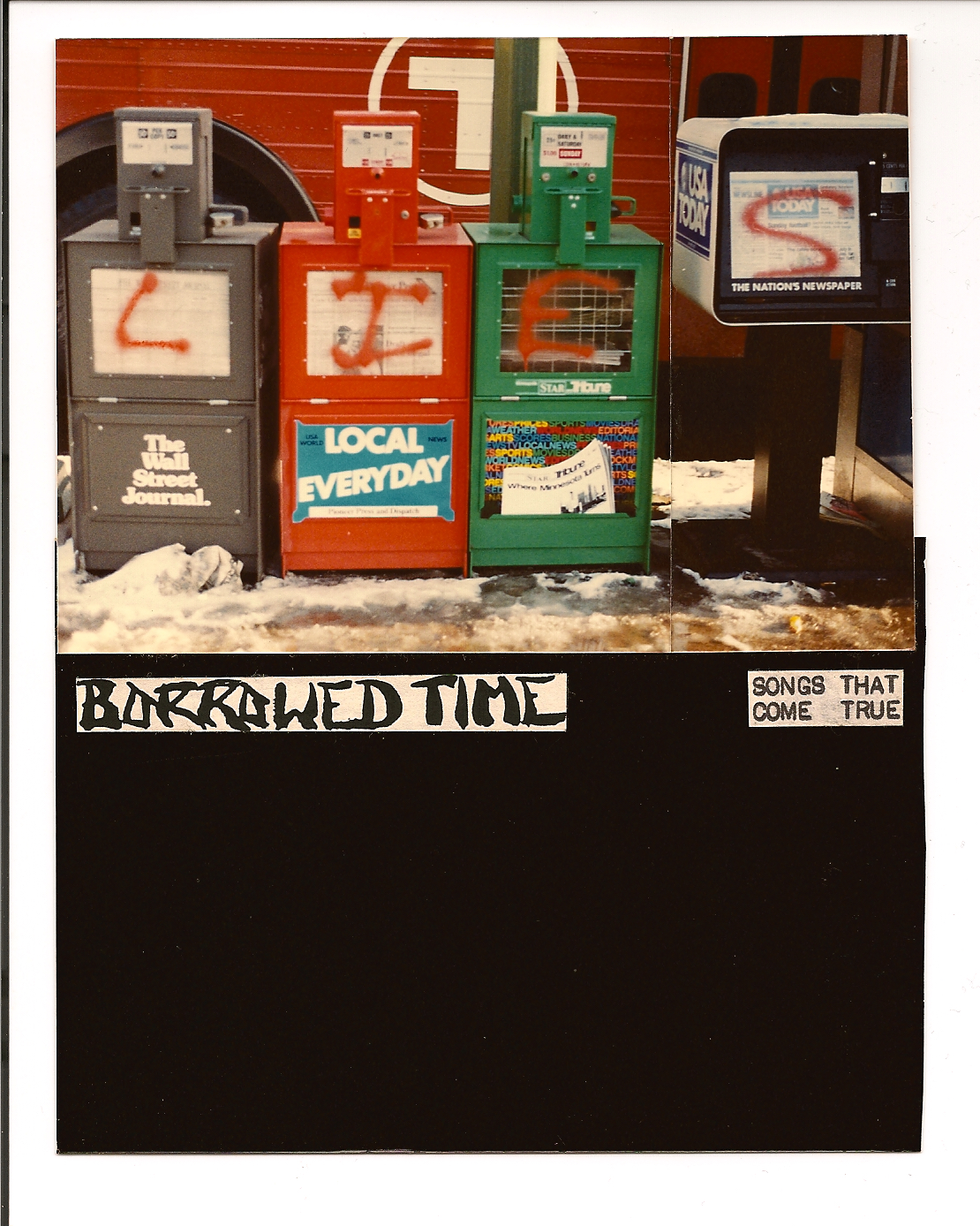
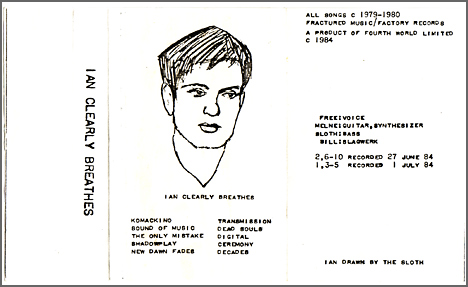
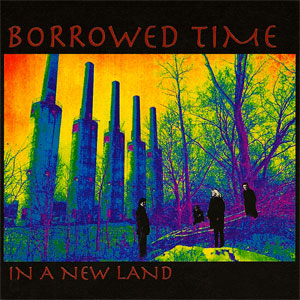
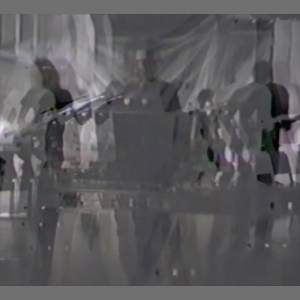
![Borrowed Time from the In A New Land photo session: Melne, Bill, Ward, J. [photo © Sean Smuda] Borrowed Time In A New Land inlay photo](https://sonicarchives.com/wp-content/uploads/bt_inlay.jpg)